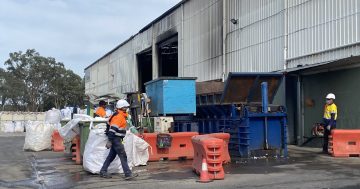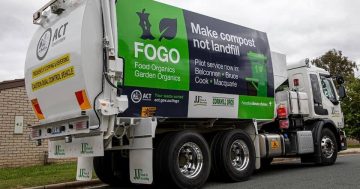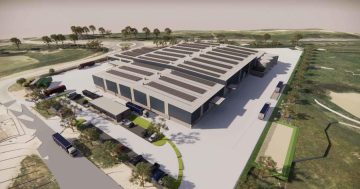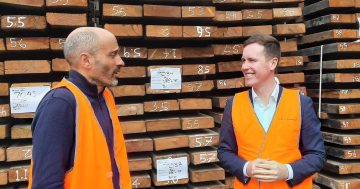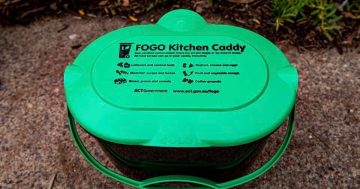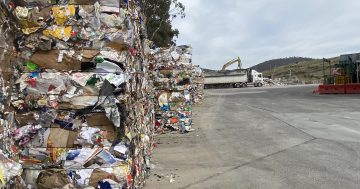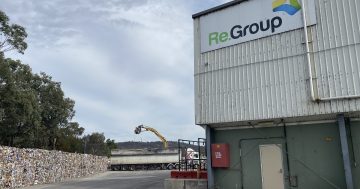
The ACT government says the right infrastructure is critical to creating a circular economy. Photo: Chris Steel Facebook.
While the ACT serves as the nation’s capital, our city also operates as a major regional hub in our country’s most populated state.
This is true for our hospitals and tertiary education, but also for waste. Tens of thousands of tonnes of rubbish and recycling from surrounding regional councils are processed right here in Canberra.
So the fire that destroyed our recycling facility on Boxing Day last year was not only a major setback for recycling in the ACT, but also for our whole region.
This week we made a big step to move beyond this disaster through the release of a tender to design, build and operate a new recycling facility.
We’ve expedited this process as much as possible while being thorough and properly considering the environmental risks and the opportunity to use the entire site at Hume.
The facility will also have to service the Canberra region for decades to come. To do this, we are doubling our recycling capacity to 115,000 tonnes per year, improving processing capacities like glass crushing and plastic flaking, and using the latest in sorting technology to create higher-value recycling products by cutting contamination.
While we build this facility for the Canberra region, all the materials that you put in their yellow recycling bin are going on to be recycled interstate.
The interstate transportation of the region’s recycling is a costly and unsustainable long-term solution, so the priority has to be getting this facility up and running as soon as possible. While the government remains committed to rolling out Labor’s commitment for a citywide FOGO collection, the new recycling facility has to come first.
In the meantime, the government is still progressing with the environmental work required for a large-scale FOGO facility, and a tender will be released later in the year.
Managing the food waste of hundreds of thousands of households is no small task. It’s why the recommended solution to process this waste is an industrial in-vessel composting facility where all elements of the process, from odour to temperature, aeration and moisture, are tightly controlled.
Unfortunately, though it’s enjoyable, backyard or suburban-level composting just won’t cut it. A city of half a million people needs industrial-level waste solutions, and that’s what we are focused on delivering.
Canberrans are Australia’s great recyclers and the Belconnen FOGO pilot shows that they will be excellent recyclers of food waste as well.
We will be making the job of composting food waste easy for Canberra households, reducing emissions from landfill, while supporting more jobs in recycling here with the end product being used in our region’s primary industries.
The best way to manage our waste is not to create it in the first place, but the next best thing is building the infrastructure Canberra needs to add value to the resources we do use, to create local jobs and build a circular economy.












